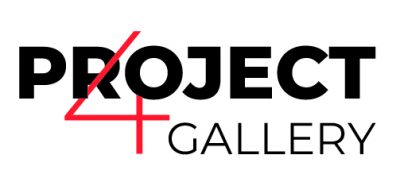The New Yorker, renowned for its wit and social commentary, serves as a mirror reflecting the evolving attitudes and societal shifts regarding various aspects of life, including parenthood. Over the years, its cartoons have captured the changing perceptions, challenges, and humor surrounding the decision to have children. In this exploration, we delve into how attitudes towards parenthood have transformed, as depicted in New Yorker cartoons, examining societal influences, cultural changes, and individual perspectives.
Traditional Expectations: Early New Yorker cartoons often portrayed parenthood through a lens of traditionalism and societal norms. Characters were depicted as contented parents, embracing the joys of family life without questioning its conventions. Cartoons from the mid-20th century showcased large families, with parents portrayed as authoritative figures and children as obedient subjects, reflecting the prevailing notion of the nuclear family ideal.
Rebellion and Liberation: As societal norms began to shift in the latter half of the 20th century, New Yorker cartoons mirrored the emergence of countercultural movements and the questioning of traditional roles. Cartoons depicted rebellion against the societal pressure to conform to parenthood, with characters opting for alternative lifestyles or expressing ambivalence towards having children. Themes of liberation and individualism emerged, challenging the notion that parenthood was an obligatory rite of passage.
Parenthood as a Choice: The late 20th and early 21st centuries saw a significant shift in attitudes towards parenthood, with New Yorker cartoons reflecting the increasing emphasis on personal choice and autonomy. Characters were portrayed grappling with the decision to have children, weighing the pros and cons amidst competing desires and aspirations. Parenthood was no longer viewed as an inevitable stage of life but rather as a deliberate choice influenced by factors such as career aspirations, financial stability, and personal fulfillment.
Delayed Parenthood and Fertility: Alongside the trend towards viewing parenthood as a choice came a shift towards delayed childbearing and discussions surrounding fertility. New Yorker cartoons depicted characters navigating the complexities of fertility treatments, reproductive technologies, and the challenges of conceiving later in life. Themes of anxiety, uncertainty, and the biological clock featured prominently, reflecting the realities faced by many modern couples grappling with the decision to start a family.
Diversity and Inclusivity: In recent years, New Yorker cartoons have increasingly embraced diversity and inclusivity in depictions of parenthood. Characters from diverse racial, ethnic, and LGBTQ+ backgrounds are portrayed as parents, challenging traditional notions of family structure and representation. Cartoons celebrate the richness of varied family configurations and highlight the universal experiences of love, humor, and chaos inherent in parenting, regardless of background or identity.
Parenthood in the Digital Age: The advent of technology and the digital age have also influenced depictions of parenthood in New Yorker cartoons. Themes such as screen time, social media, and the challenges of balancing virtual and real-world interactions resonate with modern parents navigating the complexities of raising children in an increasingly connected world. Cartoons humorously capture the absurdities of digital parenting dilemmas while also exploring the profound impact of technology on family dynamics and relationships.
Environmental Consciousness: Environmental concerns and sustainability have become prominent themes in contemporary depictions of parenthood in New Yorker cartoons. Characters grapple with the ethical dilemmas of bringing children into an uncertain world plagued by climate change, overpopulation, and ecological degradation. Cartoons explore the tension between the desire to nurture future generations and the responsibility to protect the planet, prompting reflection on the implications of parenthood in an environmentally conscious era.
Conclusion: Through the lens of New Yorker cartoons, we witness the evolution of attitudes towards parenthood, from traditional expectations to a nuanced understanding of parenthood as a choice influenced by diverse factors. These cartoons reflect broader societal shifts towards individualism, diversity, and environmental consciousness, highlighting the complex interplay of personal desires, social norms, and global challenges in shaping contemporary perspectives on family life. As the cultural landscape continues to evolve, New Yorker cartoons will undoubtedly continue to capture and reflect the ever-changing dynamics of parenthood in all its humor, complexity, and humanity.









